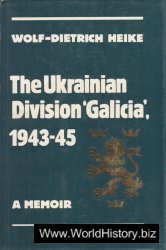Gregory's decision formed the cornerstone of medieval politics: instead of relying on a king to protect against the Lombards, or to distribute grain in times of famine, Gregory took on
The job himself. Thus the papacy became a political as well as a spiritual office. The power of the popes would rise to staggering heights in centuries to come, and it could all be traced back to Gregory—yet Gregory did what he did, not because he wanted power, but because he felt there was no choice.
During his extraordinarily active career, Gregory ransomed prisoners and constantly welcomed refugees from war-torn Italy into the relatively safe confines of Rome. He took power over corrupt bishops who were buying and selling church offices (a sin known as simony), committing adultery, and doing other things inappropriate to their roles as spiritual leaders. He dealt harshly with heresy, or behavior that went against church doctrine, yet often negotiated with Lombard leaders who still embraced the heretical branch of Christianity called Arianism. He constantly promoted the purity of the monastic lifestyle and tried to keep the church free from worldly corruption; yet he built up its political power to such a degree that corruption was bound to seep in.
Among Gregory's achievements were the conversion to Catholic Christianity of the Lombards from the Arian heresy, and of the Anglo-Saxons from paganism. The conversion of the English took place under Augustine of Canterbury (died 604), who Gregory sent to Britain. Augustine became the first archbishop of Canterbury, the religious leader of Britain. Gregory also showed his ability to negotiate with the Franks in France, and the Visigoths in Spain, even though neither of these groups formally accepted the leadership of the pope.
Gregory's effect could be observed throughout Europe, from the haunting tones of Gregorian chants—a type of singing performed by Benedictine monks, written down for future generations under his orders—to the many tales of miracles associated with him and with his death in 604. Yet his greatest legacy was in the formation of the church as a political power, and of Western Europe or Christendom as a political and spiritual alliance united under the leadership of a strong pope.




 World History
World History









